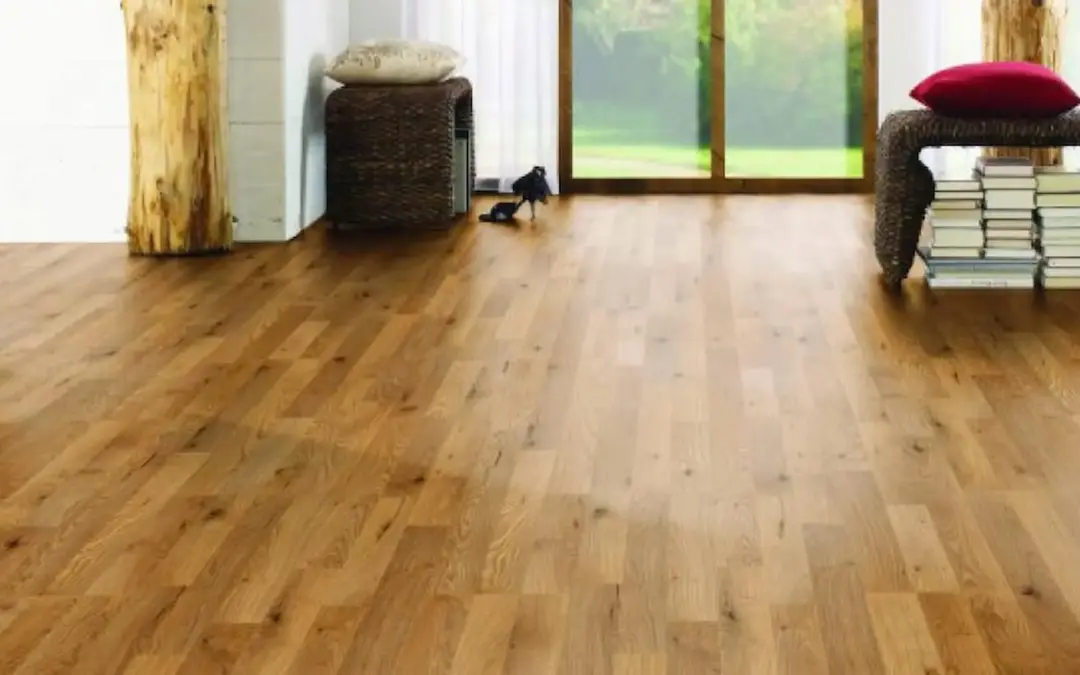Wooden flooring has become increasingly popular in recent years, offering a timeless and elegant aesthetic to homes and commercial spaces. If you’re considering a flooring upgrade, you may be wondering if wooden flooring is a good option. In this article, we will explore the advantages and disadvantages of wooden flooring, along with key factors to consider when making your decision.
Introduction
Wooden flooring offers a natural and warm ambiance to any space, creating a cozy and inviting atmosphere. It can complement various interior design styles, from traditional to contemporary, and adds a touch of sophistication to any room. However, before deciding whether wooden flooring is the right choice for you, it’s essential to weigh its advantages and potential drawbacks.
The Benefits of Wooden Flooring
Durability and Longevity
One of the significant advantages of wooden flooring is its durability and longevity. High-quality hardwood floors can withstand heavy foot traffic and last for decades with proper care. Unlike carpet or laminate flooring, wooden floors can be sanded and refinished multiple times, refreshing their appearance and extending their lifespan.
Aesthetic Appeal
Wooden flooring adds a touch of natural beauty and elegance to any space. The warmth and character of wood bring a unique charm that can enhance the overall aesthetic of your home or office. With a wide range of wood species, finishes, and grain patterns available, you can choose a style that complements your interior design vision.
Versatility and Style Options
Wooden flooring offers versatility in terms of design and style options. Whether you prefer a classic oak look, a rustic distressed finish, or a sleek and modern aesthetic, there is a wooden flooring option to suit your taste. Additionally, you can play with different installation patterns, such as herringbone or chevron, to create a more visually appealing floor.
Easy Maintenance and Hygiene
Wooden flooring is relatively easy to maintain compared to other flooring materials. Regular sweeping or vacuuming, along with occasional mopping using a manufacturer-recommended cleaner, is usually sufficient to keep it clean and in good condition. Moreover, wood floors do not trap dust, pet dander, or allergens, promoting better indoor air quality and a healthier living environment.
Potential Drawbacks of Wooden Flooring
Cost Considerations
Wooden flooring can be a significant investment compared to other types of flooring. The cost varies depending on the wood species, quality, and installation method. While it may require a higher upfront investment, the durability and longevity of wooden flooring can make it a worthwhile long-term investment.
Susceptibility to Moisture
Wooden flooring, especially solid hardwood, is susceptible to moisture and humidity. Excessive exposure to moisture can cause the wood to expand, warp, or even develop mold and mildew. It’s crucial to consider the moisture levels in your environment and choose appropriate wood species or engineered wood flooring designed to handle moisture better.
Vulnerability to Scratches and Dents
Although wooden flooring is generally durable, it is not entirely impervious to scratches and dents. Sharp objects, high heels, or heavy furniture can potentially leave marks on the surface. However, with proper preventative measures like using furniture pads and area rugs, you can minimize the risk of damage and maintain the floor’s appearance.
Factors to Consider
When deciding whether wooden flooring is a good option for your space, consider the following factors:
Lifestyle and Foot Traffic
Evaluate your lifestyle and the amount of foot traffic in the area where the wooden flooring will be installed. High-traffic areas may require a harder wood species or protective finishes to withstand daily wear and tear. Additionally, if you have pets or children, choosing a more scratch-resistant wood or opting for a distressed finish can help conceal any potential marks.
Climate and Humidity Levels
Consider the climate and humidity levels in your region. In areas with high humidity or frequent temperature fluctuations, engineered wood flooring, which is more dimensionally stable, may be a better choice than solid hardwood. Engineered wood is constructed with layers of real wood topped with a protective veneer, offering increased resistance to moisture-related issues.
Budget and Long-term Investment
Determine your budget and consider wooden flooring as a long-term investment. While it may require a higher upfront cost, its durability and potential to increase the value of your property can make it a worthwhile investment. Evaluate the cost of different wood species and installation methods, and choose the option that aligns with your budget and long-term goals.
Conclusion
Wooden flooring can be an excellent option for those seeking a timeless, elegant, and durable flooring solution. Its aesthetic appeal, versatility, and easy maintenance make it a popular choice for many homeowners and businesses. However, it’s essential to consider factors such as cost, moisture susceptibility, and vulnerability to scratches before making a decision. By assessing your specific needs and preferences, you can determine whether wooden flooring is the right fit for your space.
FAQs
Is wooden flooring suitable for all areas of the house?
Wooden flooring can be installed in various areas of the house, including living rooms, bedrooms, hallways, and dining rooms. However, it is not recommended for areas prone to moisture, such as bathrooms and basements.
How often does wooden flooring need to be refinished?
The frequency of refinishing wooden flooring depends on factors such as wear, tear, and the quality of the finish. On average, solid hardwood floors may need to be refinished every 8 to 10 years, while engineered wood floors may require refinishing every 12 to 15 years.
Can I install wooden flooring myself, or should I hire a professional?
While it’s possible to install wooden flooring yourself, hiring a professional installer is recommended for the best results. Professional installers have the necessary expertise and tools to ensure proper installation and minimize the risk of issues down the line.
Does wooden flooring increase the value of a property?
Wooden flooring is often considered an attractive feature by potential buyers and can increase the value of a property. Its durability, aesthetic appeal, and timeless nature make it an appealing choice for many homeowners.
How can I protect my wooden flooring from scratches?
To protect your wooden flooring from scratches, consider using furniture pads or coasters under heavy furniture, placing rugs or mats in high-traffic areas, and trimming pets’ nails regularly. These preventive measures can help maintain the floor’s appearance and minimize the risk of scratches.

